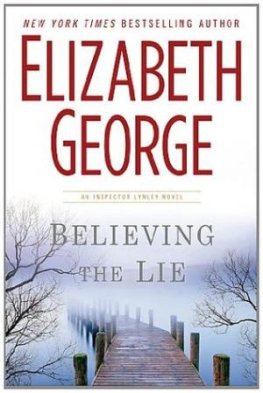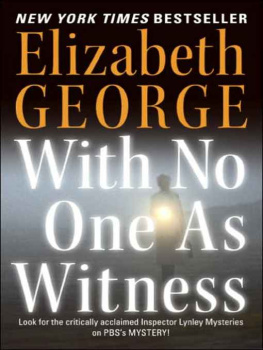For Grace Tsukiyama
Political liberal
Creative spirit
Mom
Better authentic mammon than a bogus god.
Louis MacNeice
Autumn Journal
Contents
Epigraph
Chapter 1
Joel Campbell, eleven years old at the time, began his
Chapter 2
Kendra Osborne returned to the Edenham Estate just after seven
Chapter 3
As far as friendship was concerned, things were developing far
Chapter 4
While Kendra could have taken them by car, she opted
Chapter 5
Since part of his job was to know when the
Chapter 6
A few weeks ahead of his eighth birthday, Toby showed
Chapter 7
On the night Ness saw the Blade come out of
Chapter 8
So when I get home from work, Kendra said, I
Chapter 9
Any reasonable person looking upon the Bladelet alone spending one
Chapter 10
Although Joel could hardly have been declared responsible for any
Chapter 11
Thus did Ness Campbell end up meeting her social worker.
Chapter 12
The day of Ness Campbells appearance before the magistrate did
Chapter 13
When Ness deserted her brothers on that day in Paddington,
Chapter 14
Poet of Promise. Even after Wield Words Not Weapons was
Chapter 15
Dixs absence from Edenham Estate affected everyone differently. Ness began
Chapter 16
Joel fairly threw himself at the doors of the learning
Chapter 17
While all of this was going on with Joel, Nesss
Chapter 18
Kendra was being far harder on herself than was necessary
Chapter 19
The seed of Nesss millinery idea did not bear immediate
Chapter 20
Kendra told herself that things werent as bad as they
Chapter 21
Joel was not the only person in the Campbell clan
Chapter 22
When he made the turn into Edenham Way, Joel saw
Chapter 23
The Blade drove Joel back to Edenham Estate, and all
Chapter 24
Ness remained alone, secretive and sullen. She fulfilled her obligation
Chapter 25
What Joel had not considered in his careful planning was
Chapter 26
Joel saw the dogs before Toby did: the enormous schnauzer,
Chapter 27
The worst was Toby, which was certainly something that Joel
Chapter 28
In the interview room, things were different this time, and
Acknowledgments
About the Author
Other Books by Elizabeth George
Credits
Cover
Copyright
About the Publisher
Chapter
Joel Campbell, eleven years old at the time, began his descent towards murder with a bus ride. It was a newish bus, a single decker. It was numbered 70, on the London route that trundles along Du Cane Road in East Acton.
There is not much notable on the northern section of this particular route, of which Du Cane Road is but a brief part. The southern section is pleasant enough, cruising near the V & A and past the stately white edi fi ces of Queens Gate in South Kensington. But the northern part has a list of destinations that reads like a wheres where of places in London not to frequent: the Swift Wash Laundry on North Pole Road, H. J. Bent Funeral Directors (cremations or burials) on Old Oak Common Lane, the dismal congeries of shops at the turbulent intersection where Western Avenue becomes Western Way as cars and lorries tear towards the centre of town, and looming over all of this like something designed by Dickens: Wormwood Scrubs. Not Wormwood Scrubs the tract of land circumscribed by railway lines, but Wormwood Scrubs the prison, part fortress and part asylum in appearance, place of unremitting grim reality in fact.
On this particular January day, though, Joel Campbell took note of none of these features of the journey upon which he was embarking. He was in the company of three other individuals, and he was cautiously anticipating a positive change in his life.
Prior to this moment, East Acton and a small terrace house in Henchman Street had represented his circumstances: a grubby sitting room and grubbier kitchen below, three bedrooms above, and a patchy green at the front, round which the terrace of little homes horseshoed like a collection of war widows along three sides of a grave. It was a place that might have been pleasant fifty years ago, but successive generations of inhabitants had each put their mark upon it, and the current generations mark was given largely to rubbish on doorsteps, broken toys discarded on the single path that followed the U of the terrace, plastic snowmen and rotund Santas and reindeer toppling over upon the jutting roofs of bay windows from November till May, and a sinkhole of a mud puddle in the middle of the green that stood there eight months of the year, breeding insects like someones entomology project. Joel was glad to be leaving the place, even if leaving meant a long plane ride and a new life on an island very different from the only island hed so far known.
Ja- mai-ca. His gran didnt so much say as intone the word. Glory Campbell drew out the mai till it sounded the way a warm breeze felt, welcome and soft, with promise gilding its breath. What you tink bout dat, you tree kids? Ja- mai-ca.
You tree kids were the Campbell children, victims of a tragedy played out on Old Oak Common Lane on a Saturday afternoon. They were progeny of Glorys elder son, dead like her second son although under entirely different circumstances. Joel, Ness, and Toby, they were called. Or poor litl tings, as Glory had taken to referring to them once her man George Gilbert had received his deportation papers and shed seen which way the wind of Georges life was likely to blow.
This use of language on Glorys part was something new. In the time the Campbell children had been living with herwhich was more than four years and counting this time around and looking to be a permanent arrangementshed been a stickler for correct pronunciation. She herself had been taught the queens English long ago at her Catholic girls school in Kingston, and while it hadnt served her as well as shed hoped when shed immigrated to England, she could still trot it out when a shop assistant needed sorting, and she intended her grandkids to be able to do some sorting as well, should they ever have the need.
But all that altered with the advent of Georges deportation papers. When the buff envelope had been opened and its contents perused, digested, and understood, and when all the legal manoeuvring had been engaged in to prolong if not to thwart the inevitable, Glory had shed over forty years of God-save-the-current-monarch in an instant. If her George was heading for Ja- mai-ca, so was she. And the queens English wasnt necessary there. Indeed, it could be an impediment.
So the linguistic tone, melody, and syntax morphed from Glorys rather charmingly antique version of Received Pronunciation to the pleasant honey of Caribbean English. She was going native, her neighbours called it.
George Gilbert had left London first, escorted to Heathrow by immigration officials keeping the current prime ministers promise to do something about the problem of visitors overstaying their visas. They came for him in a private car and glanced at their watches while he bade Glory a farewell thoroughly lubricated by Red Stripe, which hed begun to drink in anticipation of the return to his roots. They said,
Come along, Mr. Gilbert, and took him by the arms. One of them reached into his pocket as if in search of handcuffs should George not cooperate.
But George was happy to go along with them. Things hadnt really been the same at Glorys since the grandkids had dropped on them like three human meteors from a galaxy hed never quite understood.
Look damn odd, Glor, hed say when he thought they werent listening. Least, the boys do. Spose the girls all right.
Next page
















